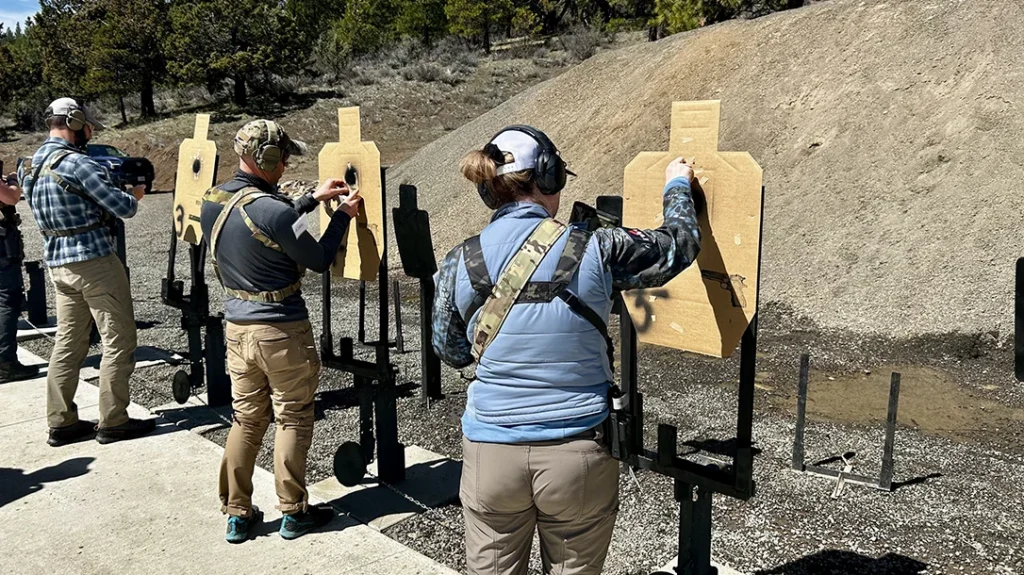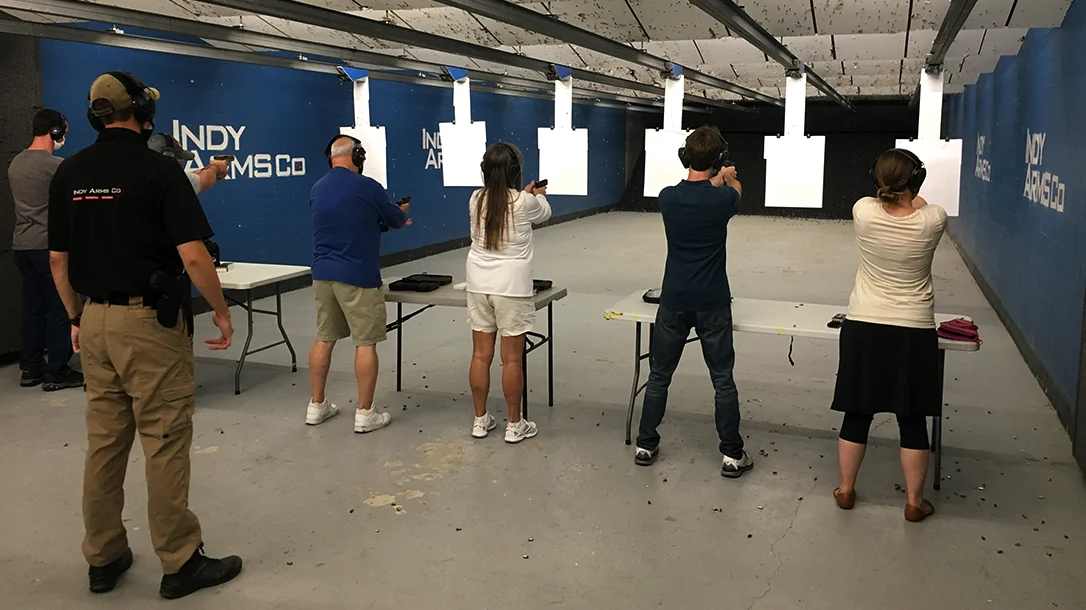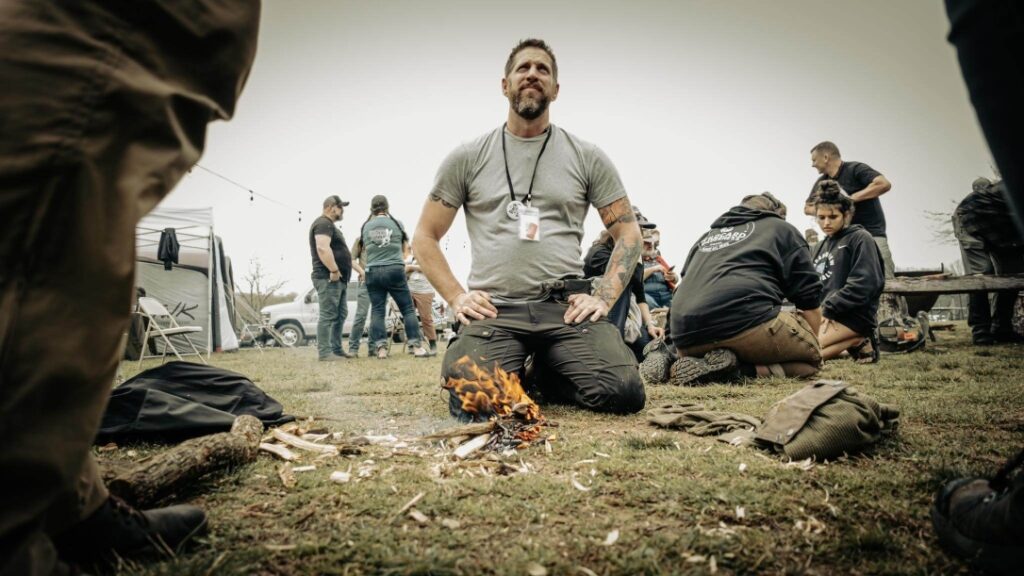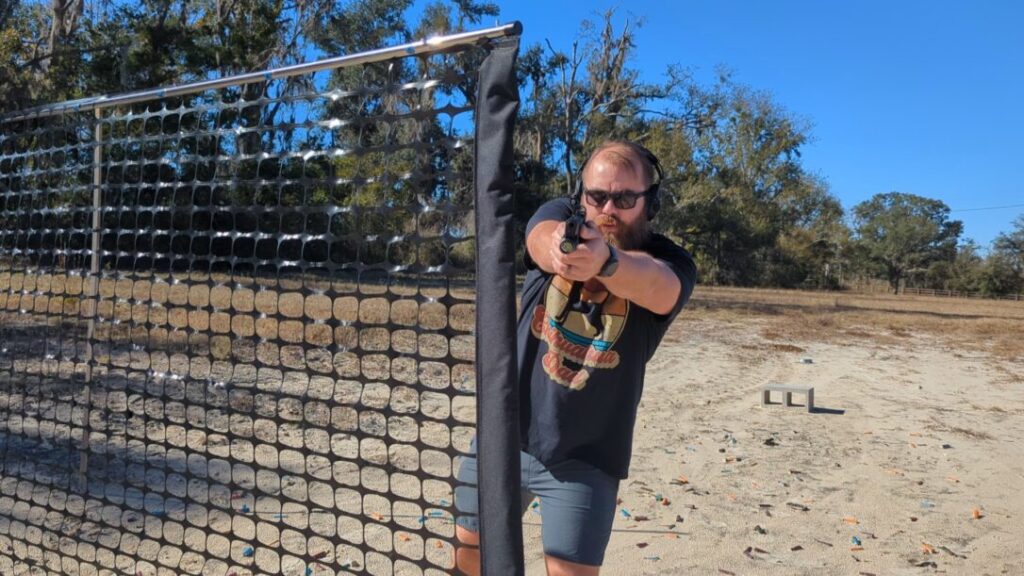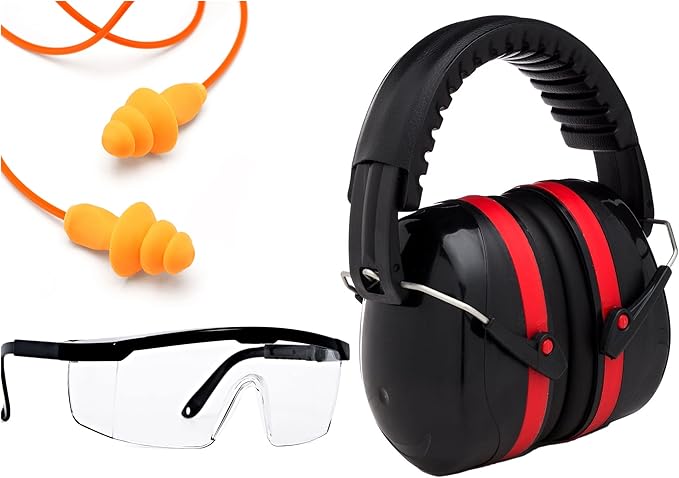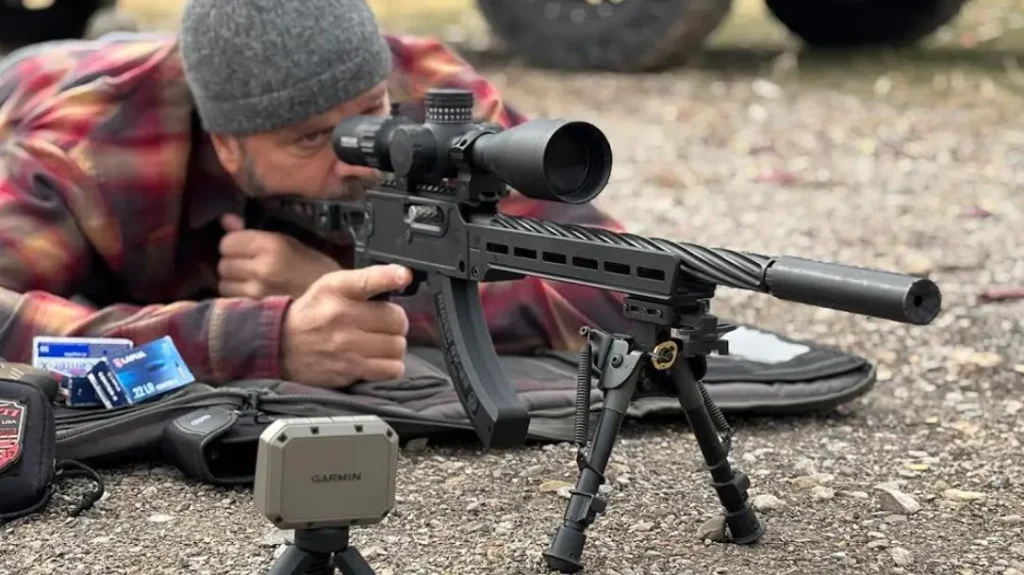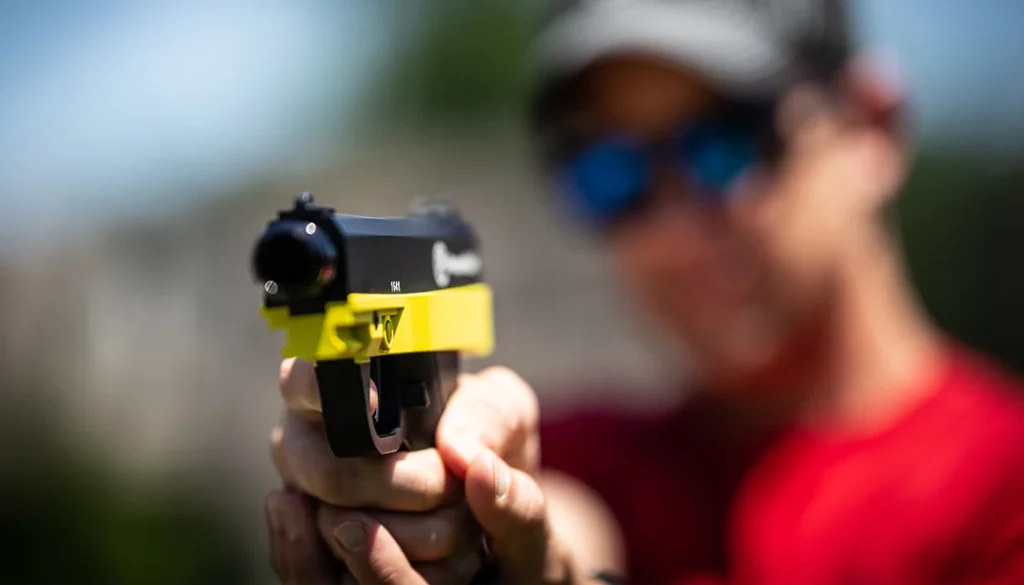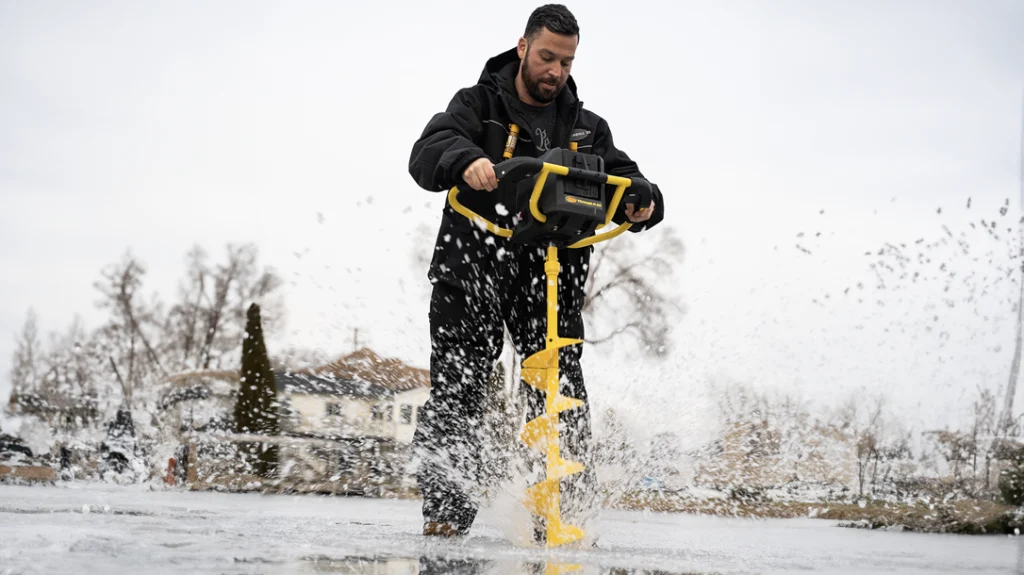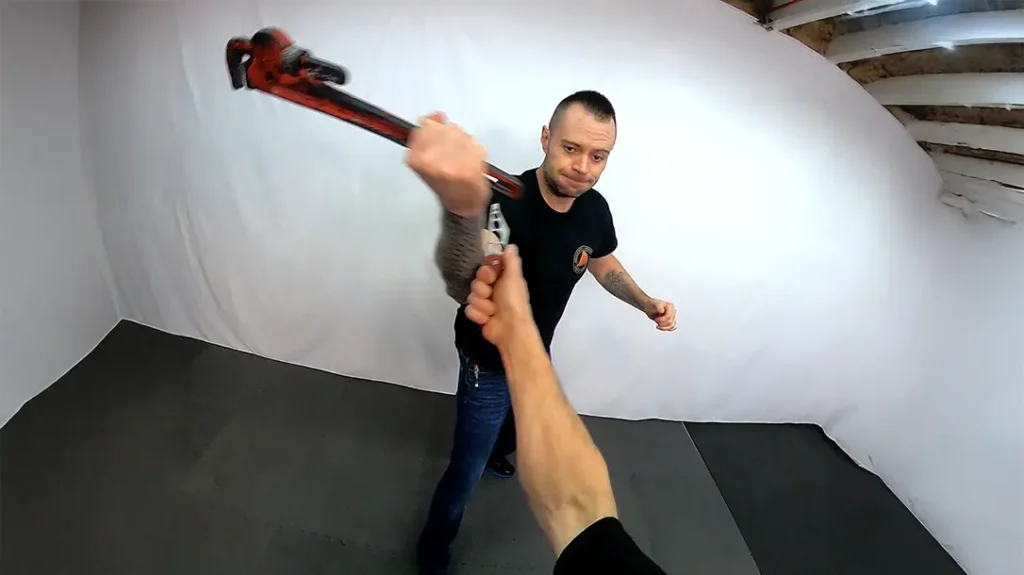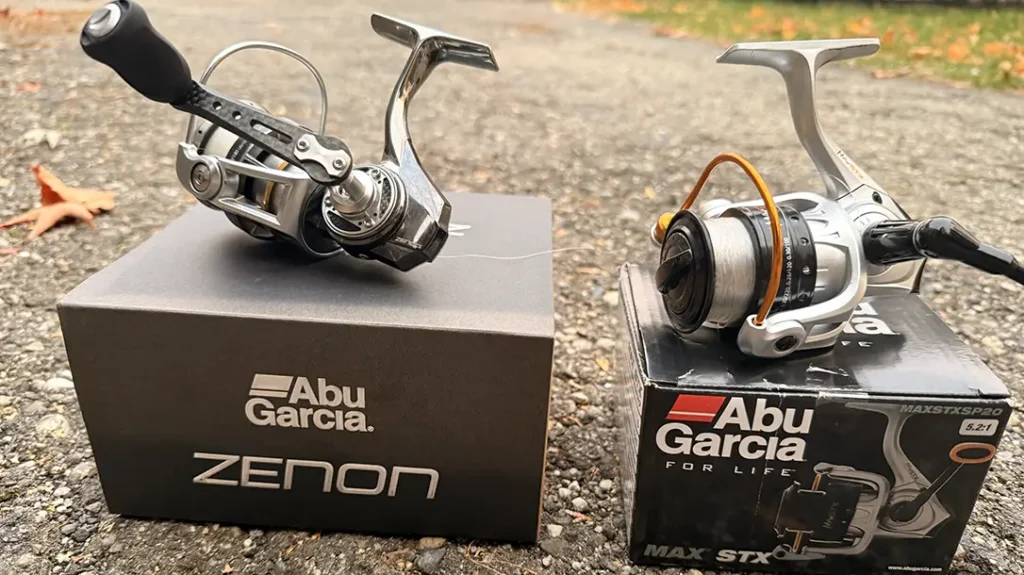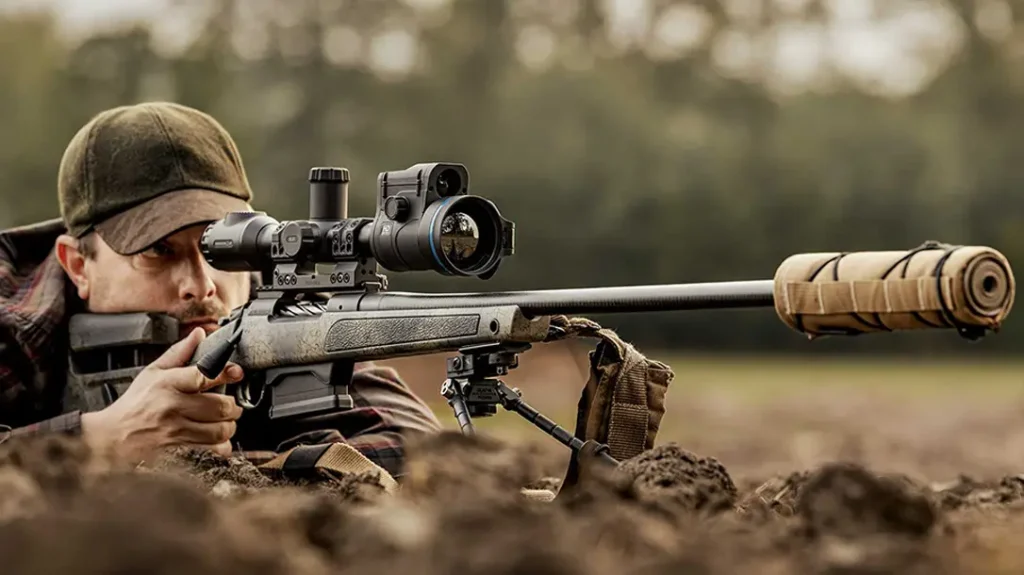I have been teaching and designing armed self-defense courses (handguns, rifles, shotguns, unarmed) for the better part of three decades. Likewise, I have held or currently hold multiple certifications from local, corporate-specific, and national organizations. This enables me to teach and certify others as instructors. Not to mention, it gives me insight into what to look for when choosing a defensive firearm instructor. The tips below will help ensure you find the right training.
Choosing a Defensive Firearm Instructor
I have been an educator in most facets of my life, ranging from corporate training as a senior consultant to my career as a professor of psychology. Additionally, I enjoy taking classes, both to learn new skills and to adapt techniques into my own teaching. As part of my interest in learning, my wife and I try to take 2-3 multi-day firearms classes across the country every year.
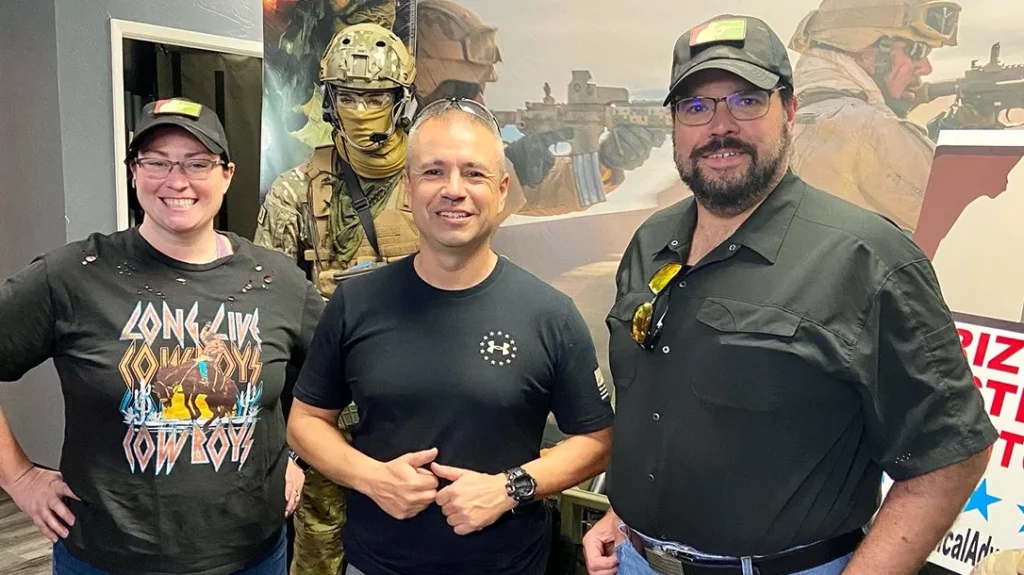
Advertisement — Continue Reading Below
This is a long-winded way of saying I have extensive experience both teaching and being taught firearms. These experiences have resulted in my own personal philosophy of what I look for in a firearms instructor.
My Personal Philosophy
My partner in firearms instruction and co-owner of Tactical Training Associates is fond of saying that he has no original ideas. But according to him, he has picked the minds of all the people who have been at the forefront of teaching civilians how to exercise their rights to use firearms to legally defend themselves and others.
Another instructor I respect used the phrase “a way, not the way.” This is embodied by the notion that, outside of basic safety, all tactics are compromises.
Advertisement — Continue Reading Below
Those personal tactical choices include what you are training for, how often you train, and how often you will practice. Based on these questions, your personal preferences for gear and tactics may well change.
In our own classes, our training program is based on what the human body and mind are likely to do naturally in a high-stress encounter. The tactics we teach are based on the knowledge that most people we train are likely to only take a few classes. Likewise, they will practice sporadically at best.
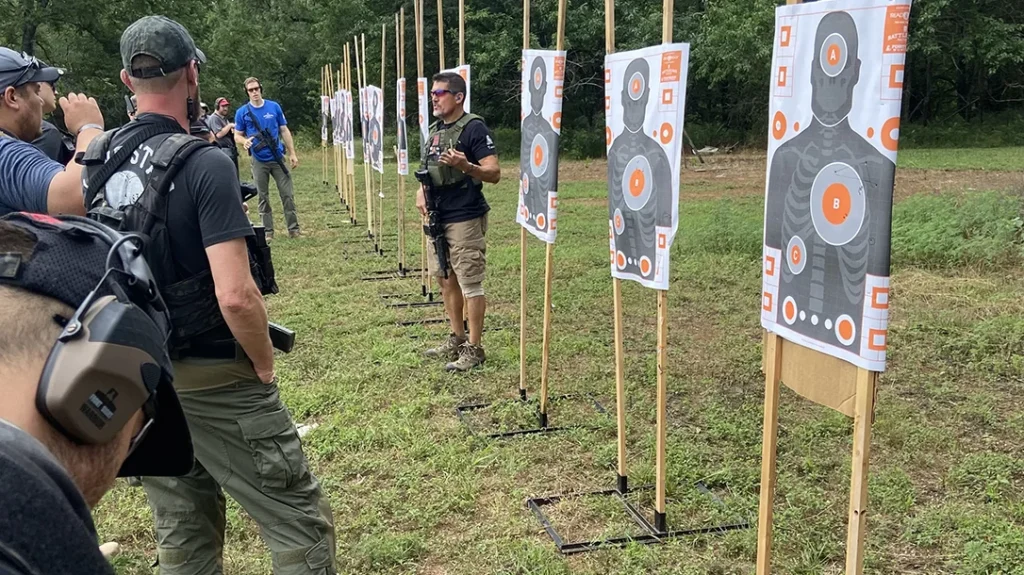
Advertisement — Continue Reading Below
Recently, someone asked me about an alternate grip style (that I don’t generally teach) they saw on a YouTube channel. I listened to their question and asked what the video provided for context and justification for using the altered grip. When asked if I agreed that it could provide advantages, I gave a qualified “yes.”
However, I also defended not teaching the style. I doubt that most people, who only train and practice occasionally, could make the deliberate change from the grip they are likely to take under stress without training.
Basically, I can see the advantages of many adaptations on grips, sights, stance, trigger, etc. However, that is only if the person plans to practice the adaptation until it becomes second nature.
Advertisement — Continue Reading Below
What Makes a Good Student
Before asking what makes a good trainer, another important question is what makes a good student. I have taken classes with excellent instructors, mediocre instructors, and, in my opinion, a few very bad instructors.
In all but one case, I have still taken lessons from the classes. Even if it is more what not to do than what to do. Thus, I think it is important to have the right mindset going into a class.
First, it is important to keep an open mind as you develop your own knowledge base. In the first few classes I took, I did not know enough to distinguish between good instruction and poor instruction. I strongly encourage my own students to take classes from other instructors as they go through our class sequence. Additionally, consider taking classes from other organizations.
Advertisement — Continue Reading Below
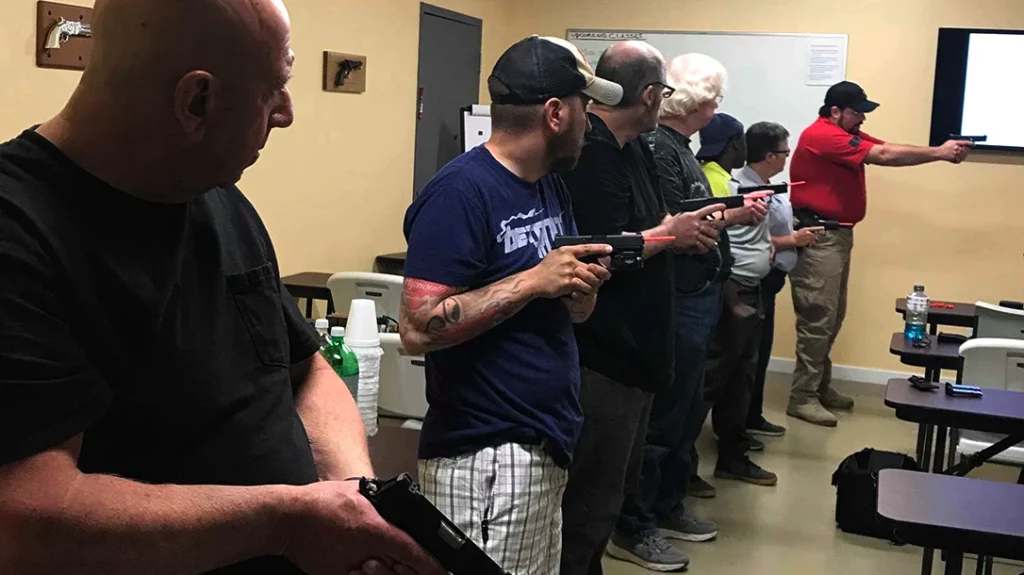
If all your instruction comes from one source, you may well be blinded to the complexity of what in that teaching works or does not work in certain situations.
Second, be there to learn, and be willing to do the drills as presented. Often, tactics and techniques may be presented that are counter to what you have already learned or adapted. The time to grandstand is not during someone else’s class. Do the drills, try to understand why they are teaching a particular method, and then afterward give it due consideration.
Advertisement — Continue Reading Below
I often perform a drill or technique in a class that I know I will not use in my own practice. However, I still try it their way, evaluate the why, and occasionally may even change my own tactical choices.
What Makes a Good Instructor
Let’s make the distinction that there can be an excellent instructor who teaches skills that are a poor fit for your needs. A few of my favorite instructors tend to teach skills from a more military background. This includes tactics that may not be a great fit for a civilian looking to occasionally train for potential self-defense from criminal elements.
Picking whether a class is a good fit for you is beyond the scope of this article. However, adapting classes to your own needs is an important part of learning from anyone.
When deciding if an instructor is a good fit for you, regardless of the class, several factors should be considered. I tend to organize these based on weight (how important they are to me) and then attach a rating (generally ranging from poor to perfect). Your personal list may be in a different order, or you may drop or add certain factors.
1 – Skillset
I don’t need someone who has seen active combat. However, I do want someone who has extensive experience and training in the skills being taught. I want to learn new skills from someone who has taken the time to learn and consider the choices they have made, and teach. Additionally, I want someone who can clearly communicate the “why” of the skills and drills they teach.
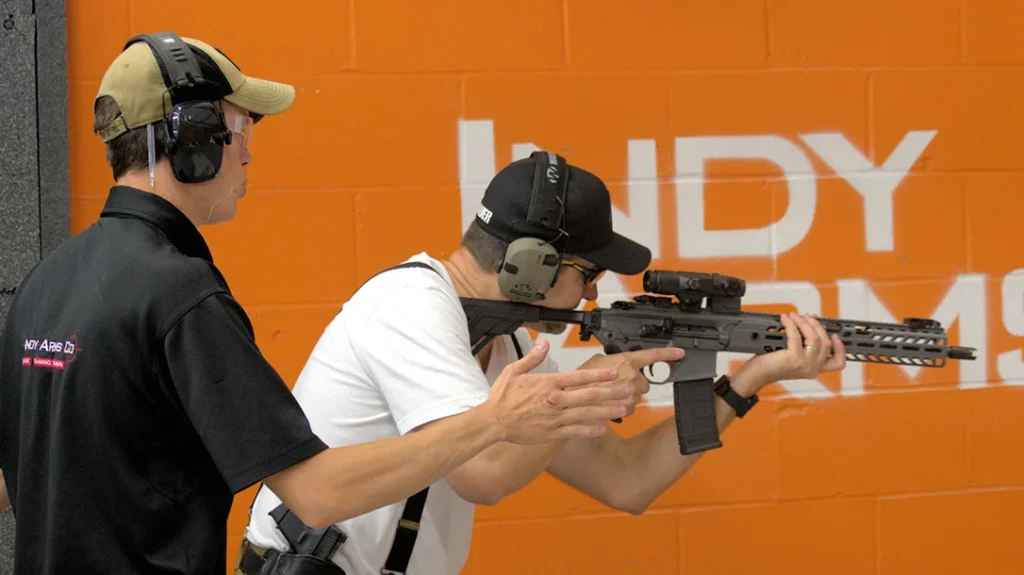
2 – Safety
For many, this will likely be at the top, and it is a close second for me. Safety can often be seen as an absolute. But I accept that as we train in more advanced skills, the specifics of safety may change. I would not have people drawing chambered handguns from a holster in an introductory class. However, I would expect to do so in a more advanced class.
Safety for me is best defined by whether the instructor makes me feel comfortable and safe, based on the level of the class and, more importantly, the skills of the students.
3 – Patience and Time Management
These two can be antagonistic, but I am looking for someone who can manage both. A good instructor will have the patience to make sure everyone is learning at their current level, but at the same time knows not to consistently teach to the least experienced person. The ability to balance teaching to a spectrum of skill levels while maintaining safety for all is a must.
4 – Love for Teaching
This goes hand in hand with a love of learning. This does not mean the person is teaching only for the love of teaching. We all must make a living. However, it is easy to tell when someone is more focused on just providing the materials and is not comfortable answering questions or ensuring everyone is learning. I am looking for someone who enjoys the process of teaching others.
5 – Similar Philosophy
Not a deal breaker, and I have perhaps learned more from instructors that I do not fully agree with. But I find it is easier to listen and adapt tactics from someone who shares at least some of my thoughts on training and self-defense.
6 – Certification and Reviews
The last item on my list is often what is available, especially if taking a class with someone new. Certifications at least tell you they have taken the time to get some training themselves in how to teach. Reviews can also provide some insight into the other items on this list.
Choosing an Instructor is a Complex Decision
As in all things, choosing an instructor is a complex decision. One that matches your personal goals with both the classes being offered and the people teaching those classes.
I believe that taking the time to consider what you are looking for will help you avoid experiences with instructors who may not be a good fit for you. Determine your goals and take multiple classes from various sources as you build your own knowledge base.
Just as you may discard various holsters or firearms to find what works for you, don’t be afraid to take the good from any class. However, be willing to discard instructors who are not the best fit, as you find those who are.
